Introduction
Looking for the best way to supercharge your marketing efforts? Look no further than WhatsApp campaigns! This powerful messaging platform offers unparalleled opportunities for businesses to connect with their audience personally.
With billions of active users worldwide, WhatsApp provides a direct line of communication to your target customers. Imagine the potential for driving engagement, boosting conversions, and fostering lasting relationships.
In this comprehensive guide, we'll dive deep into WhatsApp marketing campaigns. Discover how to leverage this channel's strengths, from personalized promotions to real-time customer support. Explore the advantages over traditional channels and emerging trends.
Get ready to unlock a treasure trove of insights and strategies that will elevate your marketing game. Buckle up and read on to learn how WhatsApp campaigns can take your business to new heights!
Understanding the Comparison Framework
Establishing a framework for evaluation is important for effectively comparing WhatsApp campaigns with other marketing channels.
Defining Campaign Goals and Target Audience Characteristics
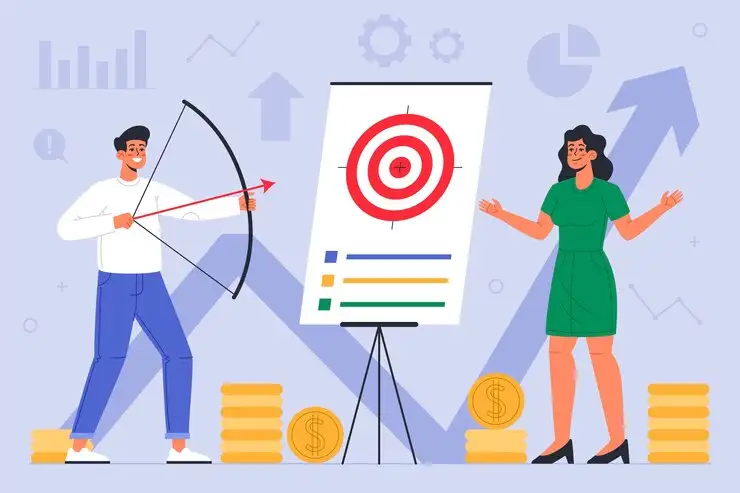
Before diving into the comparison, it's crucial to define your campaign goals and understand your target audience clearly.
Assess whether your objectives align with WhatsApp's features and capabilities.
Consider the demographic characteristics, behaviors, and preferences of your target audience to tailor your messaging better.
Key Metrics to Consider
Certain key metrics can provide valuable insights when comparing marketing channels. These include:
- Reach: Examine the potential audience size and targeting capabilities of each channel. Consider whether WhatsApp can effectively reach your desired audience.
- Engagement: Evaluate how well each channel encourages user interaction and response. Look for features like buttons, quick replies, and multimedia options that can enhance engagement.
- Conversion rates: Measure the effectiveness of each channel in driving desirable actions from your audience. Are users more likely to complete a purchase or fill out a form through WhatsApp or other channels?
- ROI: Assess the return on investment for each marketing channel. Which one generates the highest returns in terms of revenue and customer acquisition?
- Cost-effectiveness: Consider the cost of implementing and maintaining each channel. Compare the expenses associated with WhatsApp campaigns against other marketing channels.
Addressing Platform-Specific Strengths and Limitations
Understanding WhatsApp's strengths and limitations as a marketing channel is important for making an informed decision.
Strengths
- Direct and personal communication with customers.
- High open and response rates due to the familiarity and popularity of WhatsApp.
- Multimedia support for engaging content.
- Ability to create automated messaging sequences for enhanced customer journeys.
Limitations
- Restrictions on promotional content, ensuring a more authentic and non-intrusive approach.
- Dependence on user opt-in and contact availability.
- Limited reach in certain regions or demographics where WhatsApp usage is low.
Understanding these platform-specific factors will help you assess how well WhatsApp aligns with your campaign objectives and target audience characteristics.
You can make an informed decision when comparing WhatsApp campaigns with other popular marketing channels by evaluating campaign goals, target audience, key metrics, and platform-specific factors.
Next, we will cover the differences between WhatsApp campaigns and traditional channels.
WhatsApp Campaigns vs. Traditional Channels
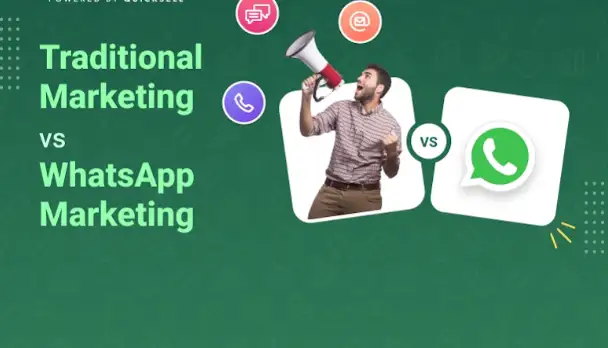
In this section, we will compare WhatsApp campaigns with some traditional marketing channels to understand how they stack up against each other.
Let's dive in!
Email Marketing
Email marketing has been a tried-and-tested channel for businesses. However, Studies show WhatsApp messages have a near-perfect open rate of 98% compared to email's average of 20-30%.
Let's compare it with WhatsApp campaigns:
- Reach vs. engagement: Email marketing allows you to reach a large audience, but WhatsApp campaigns have the advantage of higher engagement due to its personal nature and user-friendly interface.
A study by Zixflow found that WhatsApp marketing can boast conversion rates between 45% and 60%, significantly higher than email marketing's average of 2-5% .
- Personalization capabilities: While both channels offer personalization options, WhatsApp allows for more interactive and direct conversations, making it feel more personalized.
- Content formats: With email marketing, you can send longer-form content, including images and attachments. On the other hand, WhatsApp supports multimedia content like images, videos, and audio, making it more engaging and visually appealing.
- Automation potential: Both channels offer automation capabilities, but WhatsApp's automation can be more powerful as it allows you to create customized messaging sequences, enhancing the customer journey.
SMS Marketing
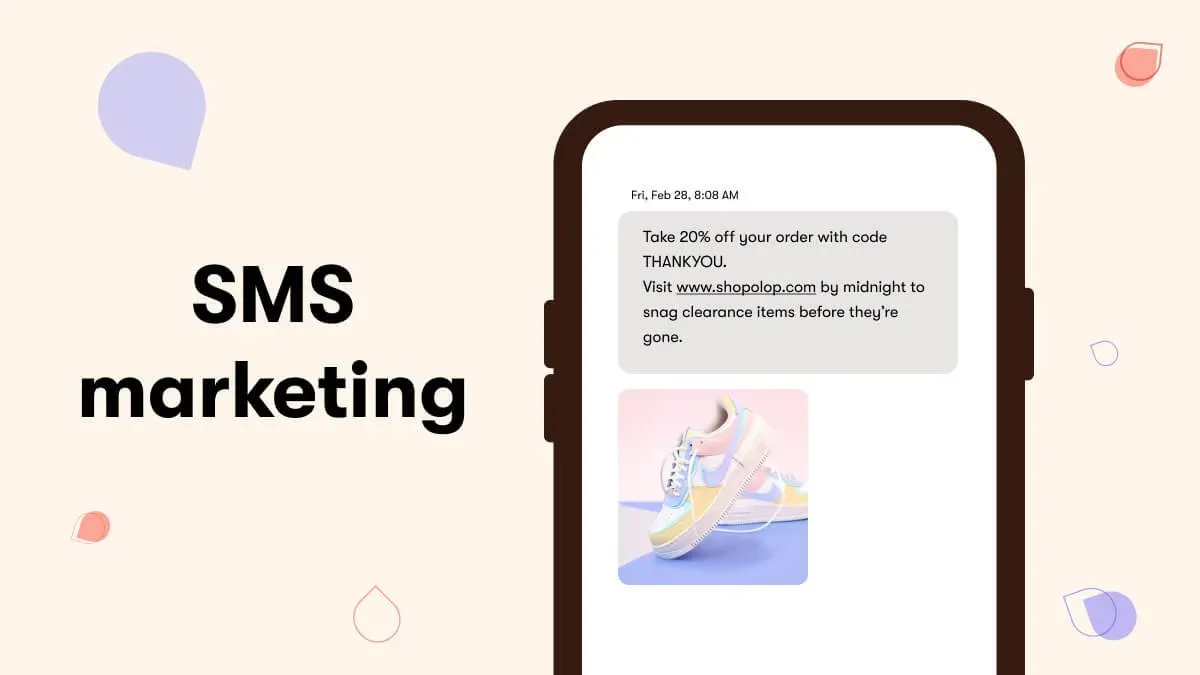
SMS marketing has been widely used for its immediacy and direct reach. Let's see how it compares to WhatsApp campaigns:
- Open rates: SMS marketing boasts high open rates, but WhatsApp campaigns can achieve similar or even higher rates due to WhatsApp's popularity and familiarity among users.
- Cost considerations: SMS marketing often comes with per-message charges, which can add up quickly. In contrast, WhatsApp campaigns offer a more cost-effective option, especially when reaching a global audience.
- Character limitations: SMS messages are limited to a certain number of characters, which can be restrictive. WhatsApp, on the other hand, allows for longer messages, giving you more space to convey your message effectively.
- Suitability for time-sensitive messages: SMS marketing is often preferred, given its immediate delivery. However, with high engagement rates and real-time communication, WhatsApp campaigns can also effectively deliver time-sensitive messages.
Social Media Marketing
Social media marketing has become an essential part of many businesses' strategies. Let's compare it with WhatsApp campaigns:
- Brand awareness vs. direct conversions: Social media marketing builds brand awareness, reaches a broad audience, and generates engagement. On the other hand, WhatsApp campaigns have more potential for direct conversions due to their personalized and direct nature.
- Organic reach vs. paid advertising: Social media platforms often restrict organic reach, making it necessary to invest in paid advertising. On the other hand, WhatsApp campaigns offer a more organic and direct connection with your audience, without the need for paid ads.
- Community building potential: Social media platforms provide opportunities for community building through groups and pages. WhatsApp campaigns, however, can foster a more intimate and exclusive community through its private messaging capabilities.
Push Notifications
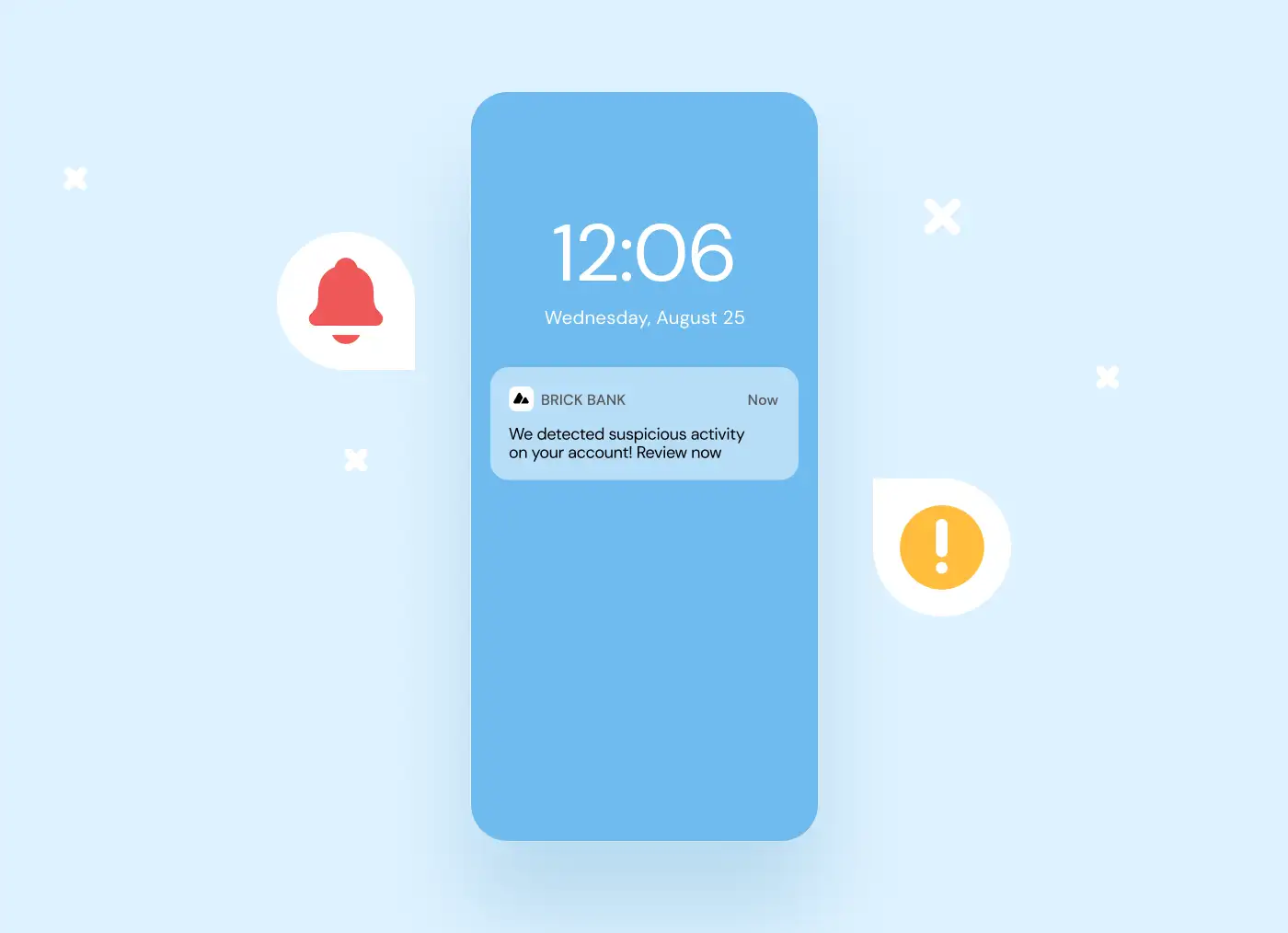
Push notifications are used to engage users on mobile apps and websites. Let's see how they compare to WhatsApp campaigns:
- High opt-in requirement: Push notifications require users to opt in to receive them, limiting your reach. On the other hand, WhatsApp campaigns can be sent to all users who have opted to receive messages from your business.
- Immediacy vs. intrusiveness: Push notifications are immediate but can be seen as intrusive by some users. With their high engagement rates and personalized approach, WhatsApp campaigns can balance immediacy and non-intrusiveness.
- Suitable for specific use cases: Push notifications are effective for app-specific updates and notifications. WhatsApp campaigns, on the other hand, can cater to a broader range of use cases, including customer support, sales, and personalized recommendations.
Next, we will cover the difference between WhatsApp Campaigns and Emerging Marketing Channels.
Suggested Reading:
Top 9 Effective Whatsapp Marketing Strategy
WhatsApp Campaigns vs Emerging Marketing Channels
WhatsApp campaigns have become popular for businesses, but what about other emerging marketing channels?
Let's compare WhatsApp with some of these channels to understand their differences and benefits.
In-App Messaging
In-app messaging refers to the ability to send messages within a specific mobile app. Let's explore how it compares to WhatsApp campaigns:
- User context and convenience: In-app messaging allows you to engage users within the context of your app, providing a seamless experience. On the other hand, WhatsApp campaigns reach users outside of the app but still offer convenience through a widely-used messaging platform.
- Limitations to specific app users: In-app messaging can only be used to communicate with users of a specific app. WhatsApp campaigns, in contrast, have the potential to reach a broader audience beyond a single app, allowing for wider brand exposure.
- Integration considerations: In-app messaging requires integration with the app's infrastructure, which may involve development resources and technical complexity. On the other hand, WhatsApp campaigns offer a ready-to-use platform with built-in features and support.
Chatbots and Conversational Marketing
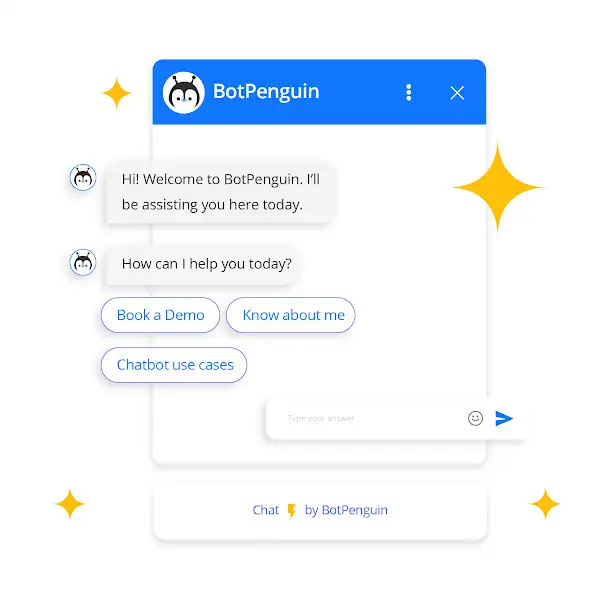
Chatbots and conversational marketing have gained popularity for their ability to offer personalized interactions.
Let's see how they compare to WhatsApp campaigns:
- Personalized interactions: Chatbots and conversational marketing can provide customized experiences based on user inputs and preferences. With their direct messaging capabilities, WhatsApp campaigns can offer customized interactions, allowing real-time conversations and quick responses.
- 24/7 availability: Chatbots can be programmed to provide round-the-clock availability, ensuring users receive responses anytime. With their mobile nature, WhatsApp campaigns also enable users to engage with your business anytime, anywhere.
- Scalability challenges: As the number of interactions and conversations increases, managing chatbots and maintaining a high level of service can become challenging. WhatsApp campaigns can also face scalability challenges, particularly with larger audiences and high message volumes.
- User adoption and trust: Chatbots and conversational marketing may require user adoption, and some users may hesitate to engage with automated systems. With their familiar interface and widespread usage, WhatsApp campaigns can leverage existing user trust and comfort.
Suggested Reading:
Best WhatsApp Chatbots For Customer Support
Live Chat Support
Live chat support allows businesses to provide real-time assistance to users. Let's compare it to WhatsApp campaigns:
- Real-time assistance: Live chat support offers immediate responses and real-time help to users. With their instant messaging capabilities, WhatsApp campaigns also provide an avenue for real-time communication and support.
- Proactive engagement: Live chat support allows businesses to proactively engage with users, initiating conversations and offering assistance when needed. WhatsApp campaigns, similarly, can be used to initiate conversations and provide proactive support.
- Resource requirements: Live chat support typically requires dedicated staff to handle incoming chats efficiently. WhatsApp campaigns may also require dedicated resources to effectively manage and respond to incoming messages.
- Integration with existing infrastructure: Live chat support can be integrated with existing customer support systems and infrastructure. With their standalone platform, WhatsApp campaigns offer a separate messaging channel that may require separate management and integration considerations.
Next, we will cover some ideal use cases for WhatsApp marketing campaigns.
Ideal Use Cases for WhatsApp Campaigns
WhatsApp campaigns are effective for various use cases, such as:
Personalized Promotions and Offers
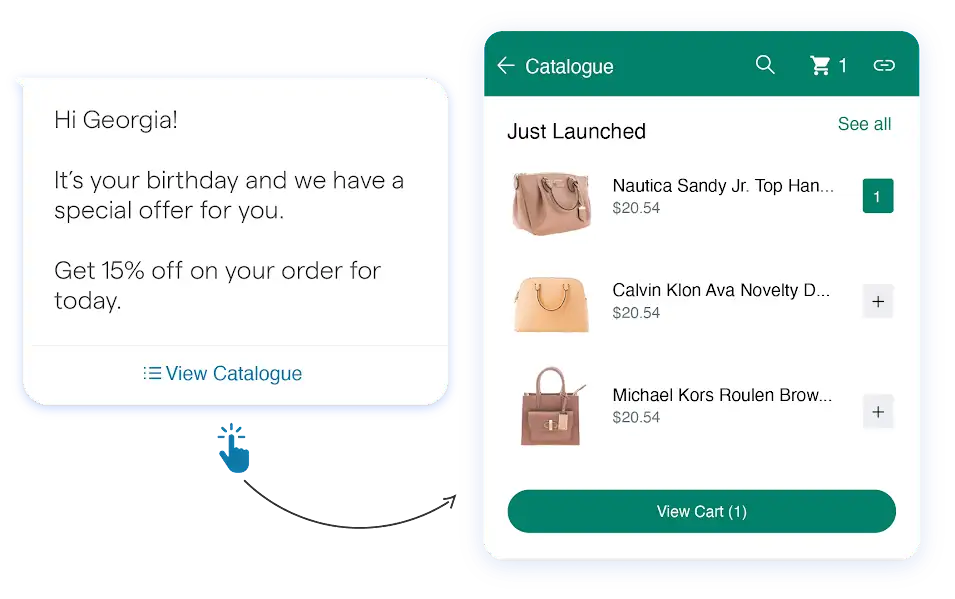
High engagement: WhatsApp campaigns offer direct and personal messaging, increasing engagement rates.
Targeted messaging: WhatsApp campaigns allow for precise targeting based on user preferences and behavior, leading to better conversion rates.
Driving conversions: With personalized promotions and offers, WhatsApp campaigns can effectively drive conversions.
Customer Support and Service Updates
- Efficient troubleshooting: WhatsApp campaigns enable businesses to provide real-time support and troubleshoot issues efficiently.
- Real-time communication: WhatsApp campaigns facilitate immediate communication, allowing businesses to promptly update customers on service changes.
- Improved customer experience: With quick responses and personalized assistance, WhatsApp campaigns enhance the overall experience for customers.
Suggested Reading:
5 Whatsapp Marketing Hacks to Boost Engagement
Interactive Content and Surveys
- Increased engagement: Customers are quick to respond on WhatsApp, with an average response time of 90 seconds compared to hours or even days for emails. WhatsApp campaigns encourage users to actively participate in interactive content like quizzes, surveys, and polls, resulting in higher engagement rates.
- Valuable customer insights: WhatsApp campaigns provide valuable customer data through survey responses, helping businesses understand their audience better.
Building brand loyalty: By offering interactive and personalized content, WhatsApp campaigns can foster a loyal and engaged customer base.
Building Communities and Customer Loyalty
Exclusive communication: WhatsApp campaigns allow businesses to communicate directly with customers, providing exclusive updates and offers.
Personalized updates: WhatsApp campaigns enable personalized communication, helping businesses build stronger customer relationships.
Fostering two-way interaction: WhatsApp campaigns facilitate two-way conversations, allowing businesses to effectively listen and respond to customer feedback.
Conclusion
Businesses need to stay ahead of the curve.
WhatsApp campaigns offer a powerful solution to connect with your audience, drive engagement, and boost conversions.
With its personal touch, multimedia capabilities, and automation potential, this channel outshines traditional and emerging marketing channels alike.
Unlock the true potential of WhatsApp marketing with BotPenguin's cutting-edge chatbot service.
Our AI-powered chatbots seamlessly integrate with WhatsApp, enabling you to deliver personalized experiences at scale.
From interactive promotions to round-the-clock support, BotPenguin empowers you to engage your customers like never before.
Harness the power of conversational marketing and elevate your brand to new heights. Get started with BotPenguin today and revolutionize your marketing strategy!
Suggested Reading:
Why is WhatsApp marketing the best asset for a business?
Frequently Asked Questions (FAQs)
How do WhatsApp campaigns compare to email marketing in terms of engagement?
WhatsApp campaigns often result in higher engagement than email marketing due to the immediacy and personal nature of the platform, leading to better open rates and responses.
What are the advantages of using WhatsApp campaigns over social media advertising?
WhatsApp marketing campaigns offer a more direct and personalized communication channel compared to social media advertising, allowing for more targeted messaging and fostering stronger customer relationships.
How do WhatsApp campaigns differ from SMS marketing in terms of reach and cost-effectiveness?
WhatsApp marketing campaigns can have a broader reach globally and are often more cost-effective than SMS marketing due to varying international SMS rates and the ability to send multimedia content.
Are WhatsApp campaigns more effective for lead generation compared to traditional advertising methods?
WhatsApp campaigns can be more effective for lead generation as they allow for real-time interactions, personalized messaging, and the potential for immediate conversion, enhancing the overall lead quality.
Can WhatsApp campaigns outperform traditional phone calls in terms of customer response and engagement?
WhatsApp campaigns can outperform traditional phone calls by offering a less invasive and more convenient communication method for customers, leading to higher response rates and engagement levels.


